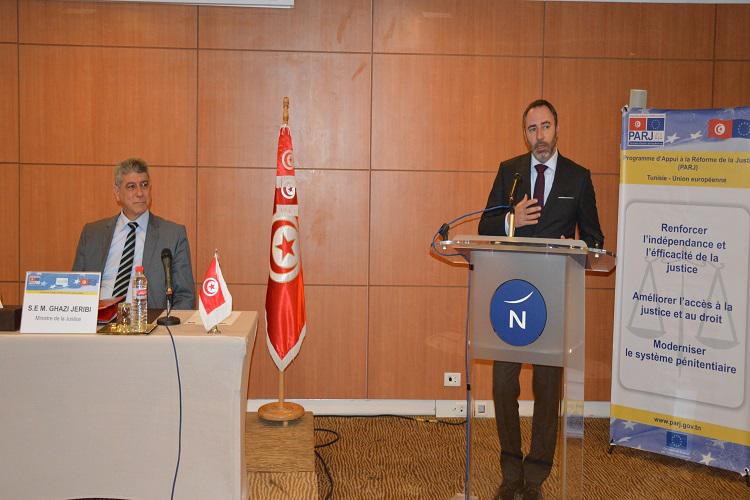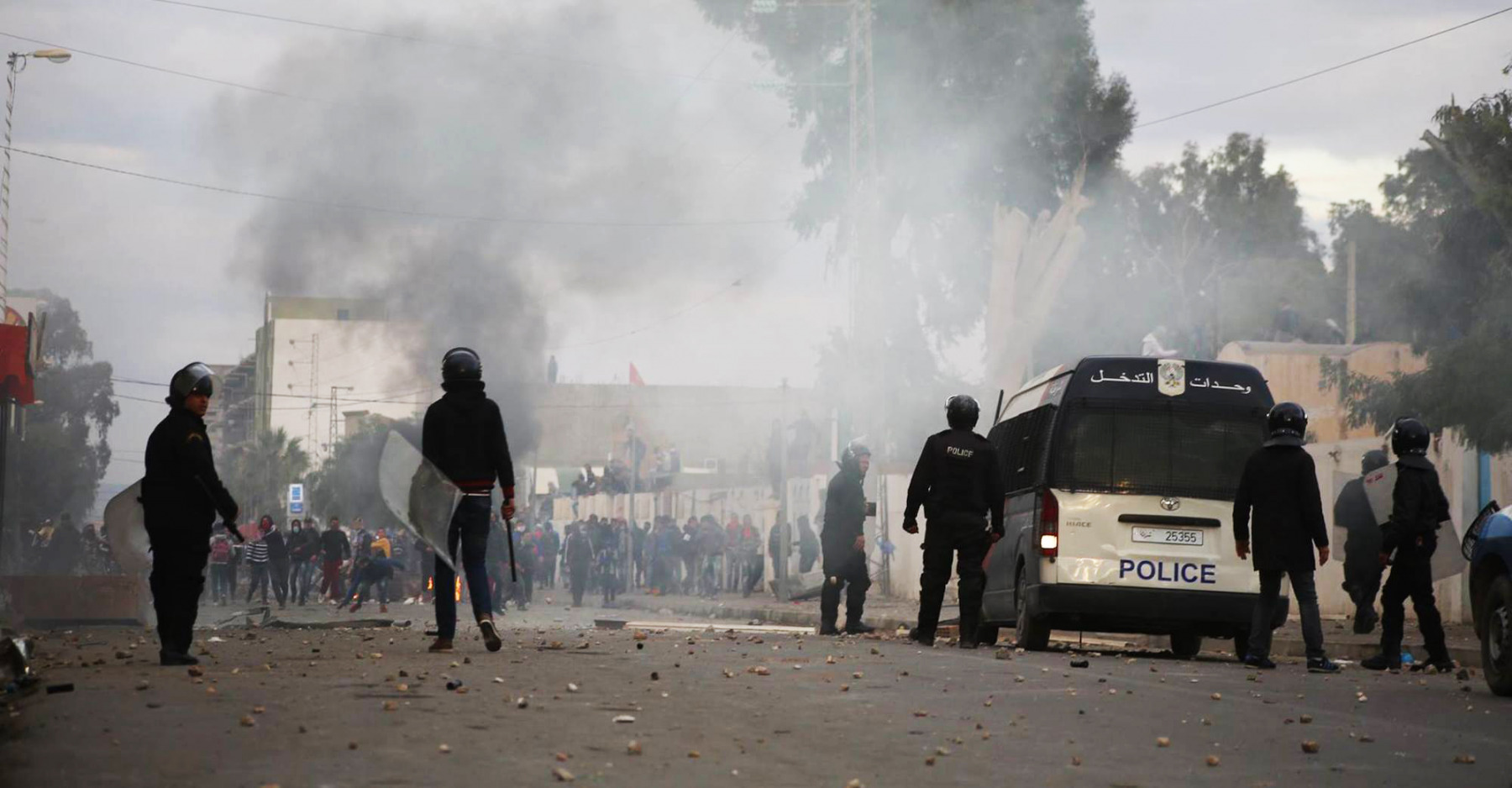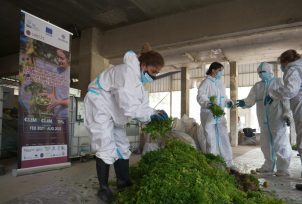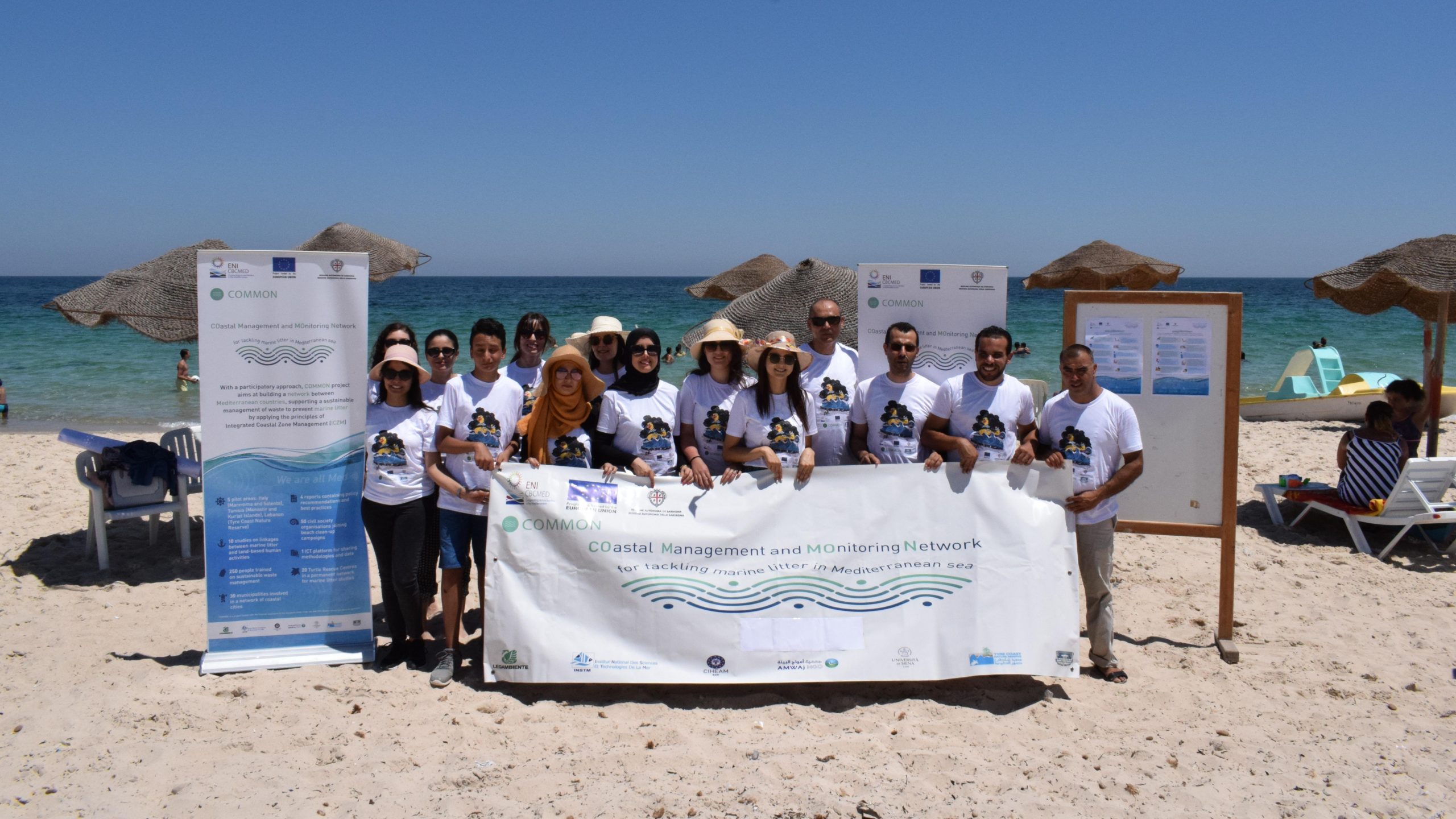EU-funded project on support of child justice system enhancement presents achievements

Tunisian ministry of justice, in partnership with the EU and UNICEF, launched in 2013 in Tunisia a programme to improve juvenile justice and bring all the actors to guarantee a better law enforcement. The results of the project “For a justice favouring the reinsertion of minors in conflict with the law” were presented during a restitution workshop organised last week in Tunis under the patronage of minister of justice Ghazi Jeribi and in presence of EU Ambassador in Tunisia Patrice Bergamini.
The programme lasted four years and benefited from an EU funding with a budget of 1.8 million euros in the framework of the Support Programme to Justice Reform (PARJ).
Thanks to the implication of all the actors, tangible results have been achieved:
– A training manual for the juvenile justice actors (magistrates, judicial police, child protection advisers, prison staff, lawyers, etc) was developed, and trainings have been organized for 1000 agents. Some of them have also benefited from study trips.
– The project has contributed to the promotion of alternatives to the detention of children in conflict with the law, notably probation and mediation. The recourse to mediation mechanisms increased by an average of 30% between 2014 and 2017 in the six provinces targeted by the project (Tunis, Greater Tunis, Sousse, Kairouan, Sfax, Gabès).
– The development of an interministerial coordination mechanism, in the form of a technical committee, has helped improve networking between the public actors in order to constantly take into account the best interests of the child. The actors of the penal chain now have six guides describing the role of each.
– Five studies have been carried out.
– The project has undertaken building capacity activities for the civil society in the six provinces. A total of about 200 minors could have been accompanied, avoiding detention or further offences. Twenty-five Tunisian associations have also been trained to intervene in the field of juvenile justice.
– A unit within the ministry of justice has been created. It is in charge of coordinating the actions of judicial bodies and different actors intervening in the field.
The EU Ambassador stated that the Tunisian youth is a common priority for the EU and Tunisia. The EU cooperation programmes support youth in the sector of education or social insertion. Moreover, the EU has announced that the cooperation with Tunisia will be given a new impetus with the upcoming signing of the third phase of PARJ (60 million euros) which provides for measures in favour of juvenile justice.
Read more




























 Syria
Syria 





